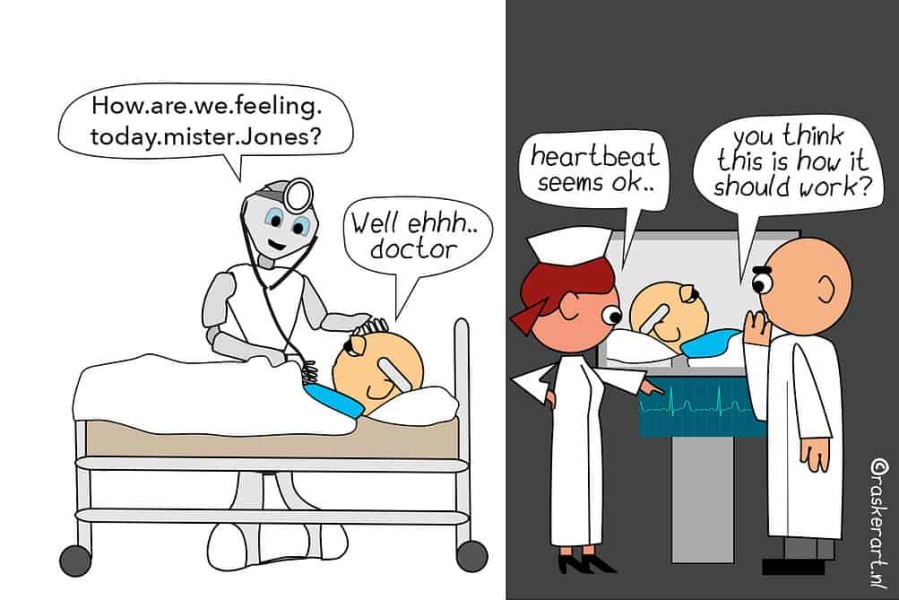A robot and a doctor at your bedside: the most normal thing in the world

One of the most common arguments regarding robots, AI, and machine learning in healthcare (or, in fact, in any human-centered sector) is the lack of personal attention.
Arthur Bouwman, a recent professor of Perioperative monitoring and clinical decision support at the Eindhoven University of Technology, makes it his professional mission to implement technology in healthcare.
WE WILL HAVE TO: PROJECTIONS ARE THAT BY 2040, ONE IN FOUR WORKERS WILL HAVE TO WORK IN HEALTHCARE. “THAT’S NOT SUSTAINABLE,” BOUWMAN EMPHASIZED IN AN INTERVIEW WITH COLLEAGUE MAURO MEREU.
But, that implementation of technology succeeds only if patients are also on board, the brand-new professor told me. “At the end of the day, their needs remain the priority. A good user experience makes all the difference in adopting a technology. As physicians, we only perceive what a patient would want.”
A scientific study of the experience of patients admitted to the ICU in Catalan hospitals during COVID-19 showed the same. In all patients, AI and robots were part of the treatment. One man (72) said:
“All the staff were bustling. A robot can help. If a robot can take over tasks, the doctor can spend more time with the patient, and care becomes more personalized.”
So, a reality in which a robot provides personal attention, as Albert Jan outlines in his cartoon this week, seems unthinkable (for now). But the combination of AI and robots as help so that healthcare personnel have more time for their patients will hopefully become more and more every day. This is also how we use our AI collegaue Laio: as an aid so that we have more time to do interviews and write longer articles for you.
If robots can also work well together, that’s a bonus. For the first time, researchers at the University of Twente managed to get two micro-robots to pick up, move, and assemble objects in 3D environments together.